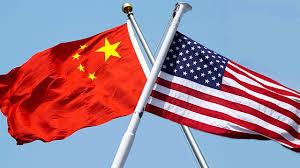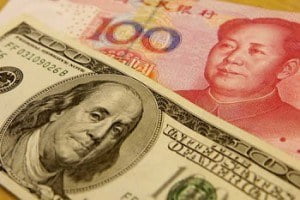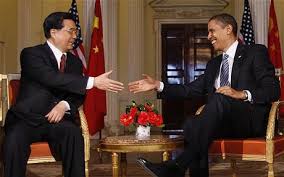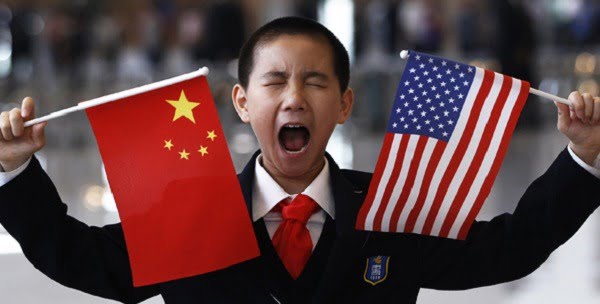Culture Matters
In recent years, China has grown to become a true global super power next to America. Since then, these two countries have been the subject of comparisons in many news and media outlets worldwide. Although these two countries have similar ambitions to dominate the world economy, their culture and mindset is like east and west (pun intended). As China opened their doors to the rest of the world, a lot of Americans were attracted to live and work in China. The differences in the way of life may come as a shock to a lot of Americans. We have made a list of common differences that Americans could prepare for before they embark through a journey in China.
1 – Collectivism vs. Individualism
 Americans put strong emphasis on individuality and autonomy. One’s personal goals and motives are more prioritized over collective ones. This culture is believed to encourage individuals to be more ambitious and they use it to drive individuals to succeed. They also put a focus on being different and making a difference. Chinese people, on the other hand, base their decisions on how they will be perceived by those around them. They will first consider how their decisions will affect their family, colleagues and friends. According to the American International Education Foundation (AIEF), Chinese people think of themselves in a collective manner. More often than not, decisions are commonly made for the greater good as opposed to personal gain.
Americans put strong emphasis on individuality and autonomy. One’s personal goals and motives are more prioritized over collective ones. This culture is believed to encourage individuals to be more ambitious and they use it to drive individuals to succeed. They also put a focus on being different and making a difference. Chinese people, on the other hand, base their decisions on how they will be perceived by those around them. They will first consider how their decisions will affect their family, colleagues and friends. According to the American International Education Foundation (AIEF), Chinese people think of themselves in a collective manner. More often than not, decisions are commonly made for the greater good as opposed to personal gain.
2 – Styles of Communication
Chinese may consider Americans to be very upfront in their manner of speaking. This may often cause a lot of misunderstanding or sometimes even hurt the feelings of some Chinese people especially if they are very sensitive. People in the US are encouraged to defend their ideas which may even lead to a confrontation or debate for the purpose of getting the other person to agree with their way of thinking. Some Chinese people would simply nod on your opinion even if they don’t really agree with what you are saying. They do this to respect and honor others’ opinions. Being too direct may be perceived as humiliating and the other person may come across as rude. Blunt communication makes Chinese people uncomfortable so they prefer the subtle, indirect ways of delivering their thoughts and opinions.
3 – Self-Promotion vs. Humility
In China, individuals are expected to treat each other well and to show humility when discussing successes. Sometimes, to avoid humiliating the second person, they would rather not discuss them at all. Self-promotion is generally frowned upon by the Chinese people. Contrary to the US, bragging is acceptable and may even be considered a norm. Americans are comfortable to openly discuss success. Some may even consider humility as a weakness rather than a virtue.
4 – Relationship vs. Economics
 In China, they put a very strong emphasis on building social networks. They refer to this as “guanxi” in Chinese or “relationship” if literally translated. They use this in conducting business; by socializing and getting to know their customers before signing a deal with them. Relationship comes first, then trust and business will eventually follow. This process usually takes a long time which is contrary to how Americans do business.
In China, they put a very strong emphasis on building social networks. They refer to this as “guanxi” in Chinese or “relationship” if literally translated. They use this in conducting business; by socializing and getting to know their customers before signing a deal with them. Relationship comes first, then trust and business will eventually follow. This process usually takes a long time which is contrary to how Americans do business.
Americans place a strong emphasis on speed and efficiency. Social interactions in the US however, are considered to be more casual and easy-going.
5 – Personal Life vs. Professional Life
In America, personal and professional lives are two separate things and should not overlap with each other. Colleagues may occasionally go out on office-sponsored functions or office parties to break the ice or get to know their coworkers on a personal level. But outside these gatherings, many of them don’t necessarily socialize or want to socialize with each other.
In China, the “guanxi” or relationship would again play a big role in their personal and professional lives. They are expected to personally know those whom they are working with to foster a genuine trust among them. Expect your managers or bosses to ask a lot about your personal life.
6 – On Saving Face
Chinese are known to have a long memory for both favors and humiliations. They take things personally and they hate losing face. They have a strong awareness that they should never be seen as a fool and lack self-control. This is the reason that Chinese don’t always express how they feel and they keep their opinions to themselves. Americans can express their thoughts more freely. They don’t mind making mistakes as much and actually believe that making mistakes is a part of the learning process. This is definitely worth knowing in the classroom, where the teacher needs to create an atmosphere where it is OK to make mistakes when using English.
7 – On Authority and Hierarchy
In China, hierarchy is what dictates authority. It is more likely to inform how they interact with each other. In the family, they are expected to listen to the one who is older. This is eminent on the order of birth in siblings that they have assigned different terminologies to distinguish between older and younger siblings. This also applies to extended family as you refer to an older uncle differently to the younger one.
This hierarchical social structure extends to the work place. The person with the highest position has the final say in decision making. Those below accept their place in the hierarchy and are expected to listen and obey without question. Americans, on the other hand, have greater fluidity between parents and their children, managers and employees and even among siblings. Decisions are usually made together and it is fairly common to see managers and employees undergo heated debates before coming up with a final decision.
 Both Chinese and American values are unique and beautiful in their own ways. It’s sometimes unavoidable that friction or misunderstanding may occur when west meets east. But despite all the cultural differences, these gaps may still be bridged through cultural awareness and mutual consideration. Let us all be advocates of inter-cultural friendship and harmony in differences is sure to follow.
Both Chinese and American values are unique and beautiful in their own ways. It’s sometimes unavoidable that friction or misunderstanding may occur when west meets east. But despite all the cultural differences, these gaps may still be bridged through cultural awareness and mutual consideration. Let us all be advocates of inter-cultural friendship and harmony in differences is sure to follow.
China has a lot to offer. If you are interested in learning more about their culture first hand while making a difference to the lives of students, ask us today on how you can begin this adventure. Teach English in China and be part of one of the fastest changing countries in the world. We offer a wide variety of high paying English teaching jobs in different major cities in China. Apply now.

















For me I’m going in German company in china and there are many foreigners around me. Especially my boss is Australian guy. Sometimes during communication, he is not warm hearted and not friendly enough, not like others friends from USA. So my question is how the Australian person act and think. Are they really thinking like western way like America? I definitely need to know from you. Thanks.
This website might help, it presents Hofstede’s cultural dimensions for each country along with a summary of each of the 6 categories. You can also compare two countries next to each other – http://geert-hofstede.com/australia.html.
Of course, this is broad analysis based on research data and will not hold true for every individual from the country.